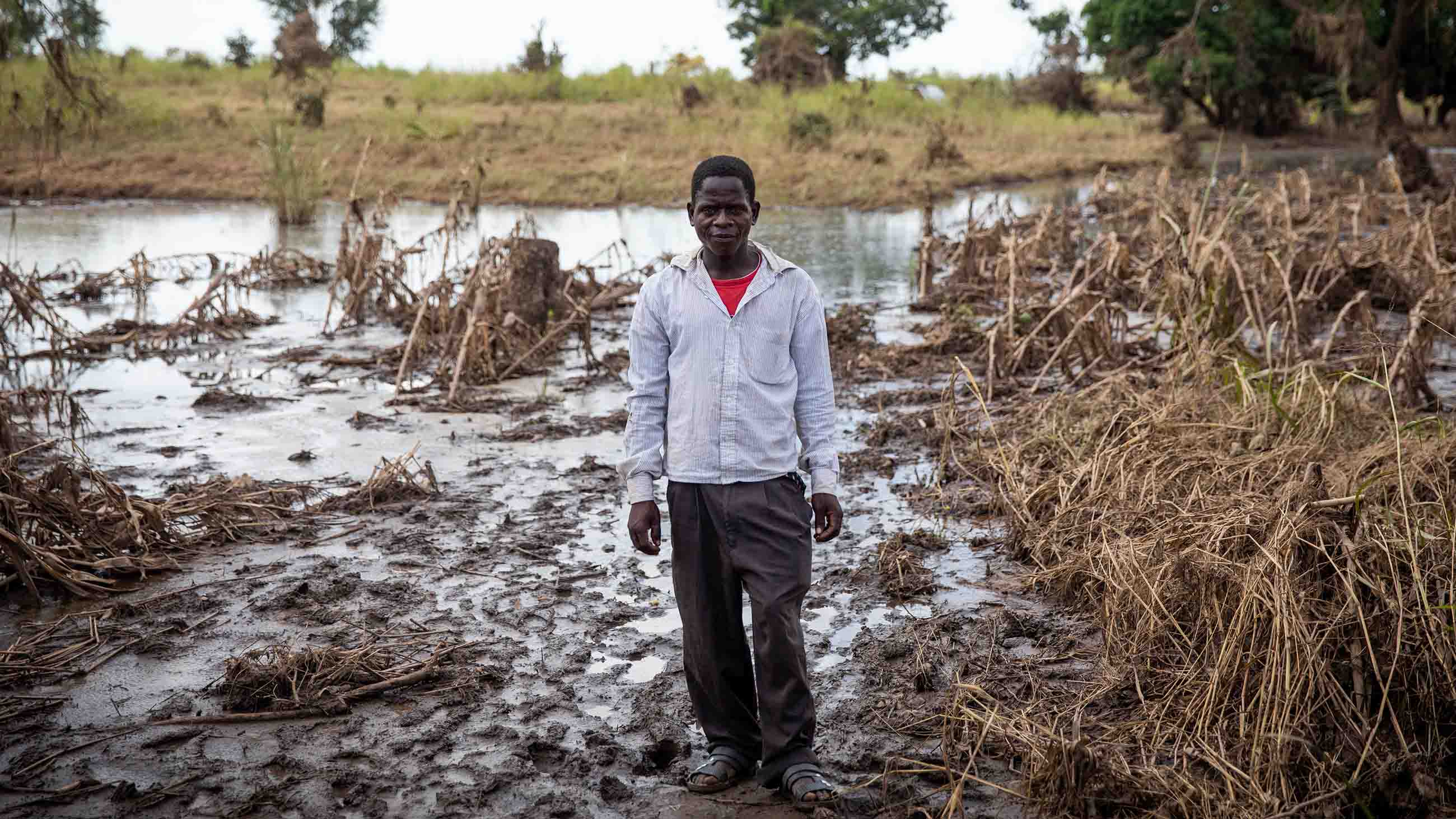
Far from the vaccination issues besieging the United States and Europe, Mozambique — located on Africa’s southwest coast — is preparing to launch a mass immunization campaign against cholera after a cyclone earlier this month left thousands of people without access to clean water.
Since Cyclone Idai touched down near the port city of Beira on March 14, at least 700 people have died in Mozambique and neighboring Malawi and Zimbabwe. The displaced survivors now live in crowded camps surrounded by standing water from the flooding, heightening their risk for disease.
Cholera, a diarrheal illness caused by bacteria, is endemic to Mozambique. But because it spreads through contaminated water and food, the scale of the cyclone’s damage to sanitation infrastructure has officials particularly worried about the possibility of an outbreak. Five cases were confirmed in Beira earlier this week, though reports now state that number has climbed to 139.
According to the World Health Organization (WHO), 900,000 doses of oral cholera vaccine are set to arrive in the country next week. “We must not let these people suffer a second disaster through a serious disease outbreak or inability to access essential health services,” Djamila Cabral, a WHO representative, told reporters.
So far, seven clinics have been set up to treat patients, with more on the way. While no deaths from the illness have yet been confirmed, a reporter for Reuters described the body of a child who had acute diarrhea being carried out of an emergency clinic in Beira on Wednesday.
In neighboring Malawi, flooding has devastated farmland, leading to the loss of more than 462,000 tons of maize, an eighth of the country’s expected output for the season. And in Zimbabwe, a local official said the government would have to spend another $24 million in response to the damage. As relief efforts across the region continue to be overwhelmed, crowdfunding campaigns from citizens living abroad have popped up to help.
Also in the news:
• Today would have been a historic moment for human endeavors in outer space — the first all-female spacewalk — as astronauts Anne McClain and Christina Koch were scheduled to venture outside of the International Space Station to install new batteries to upgrade its power storage capacity. But on Monday, NASA announced a last-minute change to the mission — astronaut Nick Hague would replace McClain. In a statement, the agency said the shift in personnel was because of a lack of spacesuits prepped for extra-vehicular activity on the ISS. McClain had originally planned to wear a large-sized spacesuit torso and Koch a medium, but after a previous spacewalk, McClain discovered she would be able to carry out the mission most effectively in a medium torso. Since only one medium torso was available and configured for the spacewalk, Koch will wear it on today’s mission. Reactions to the shift in personnel revealed that the mission had quietly become regarded a milestone for gender parity in human spaceflight. The event also highlighted how delays in servicing the spacesuits had compounded, due in part, some say, to a lack of agency funding. (The Verge)
• On Wednesday, a federal jury awarded Californian Edwin Hardeman $80 million after it concluded that his non-Hodgkin’s lymphoma was likely caused by Monsanto’s Roundup weedkiller, which he had used for decades. The decision marks the second time in less than a year that Monsanto has faced legal scrutiny over the link between cancer and its signature herbicide: Last August, a state jury ordered the company to pay $289 million to a school groundskeeper who developed non-Hodgkin’s lymphoma after being accidentally doused in Roundup. (The amount was later reduced to $78 million.) This may just be the beginning of the agricultural giant’s troubles: Some 11,000 similar lawsuits are still pending, filed in the wake of a 2015 World Health Organization report that found that glyphosate — Roundup’s key ingredient and one of the world’s most widely used pesticides — was “probably carcinogenic to humans.” The WHO report cited studies suggesting that glyphosate damaged human chromosomes and increased the risk of non-Hodgkin’s lymphoma. But Bayer, Monsanto’s parent company, maintains that the chemical is safe, and the Environmental Protection Agency’s latest draft risk assessment classifies it as “not likely to be carcinogenic to humans.” Bayer plans to appeal the recent decision. (The New York Times)
• In 2012, Colorado voted to legalize marijuana, including its use in edible forms such as brownies, cookies, and gummies. But a new study from the University of Colorado School of Medicine, Aurora, suggests edibles may be more potent and cause more severe effects than smoking or vaping. Physicians reported that between 2012 and 2016, more than 2,500 patients with cannabis-related complaints visited the University of Colorado Hospital emergency room. Of those patients, only 9 percent had taken edibles, but those cases involved more medical complications. Edible marijuana users experienced heart issues — including irregular heartbeat and heart attack — at a higher rate than marijuana smokers. They also experienced a higher rate of short-term psychiatric conditions like psychosis and anxiety, at 18 percent compared to 11 percent. Cannabis smokers, however, were more likely to experience gastrointestinal issues, accounting for 32 percent of cases versus around 15 percent of edible users. While Colorado and other states have guidelines for marijuana producers and retailers that recommend dosing standardization and labeling, production is not well regulated. (Science News)
• Jeremy Richman, the father of 6-year-old Sandy Hook Elementary School shooting victim Avielle Richman, died by suicide on Monday. Richman, a neuroscientist and gun control advocate, co-founded a nonprofit in his daughter’s name that studies the neurological underpinnings of violence. Last week, two students who survived the 2018 Marjory Stoneman Douglas High School shooting in Parkland, Florida also died by suicide: Sydney Aiello, a student at Florida Atlantic University, and Calvin Desir, a sophomore at Stoneman Douglas. On Wednesday, the Coral Springs City Hall near Parkland held a town hall meeting with mental health experts. The deaths have prompted renewed discussion about the long-term community impacts of mass violence, including post-traumatic stress, survivor’s guilt, grief, and other complex mental health conditions. (CNN)
• In an effort to control a measles outbreak that had been spreading since November, this week Rockland County — a densely populated, affluent suburb of New York City — banned unvaccinated children and teenagers from all public spaces. The ban, which went into effect midnight Tuesday, forbids them from attending school, playing in parks, and shopping at malls, among other locations. “We will not sit idly by while children in our community are at risk,” said county executive Ed Day. He said the ban would be enforced retroactively — if unvaccinated youth are discovered at such locations, their parents could face up to six months in jail, a $500 fine, or both. Day added that the county took the action after parents refused to cooperate with more standard efforts to control the spread of the virus, refusing to answer questions from public health officials seeking to limit its spread. The decision set off a debate on whether the move was ethical or even legal, but some experts firmly endorsed the move, noting that protecting public health is a primary task of government officials. (The New York Times)
• And finally: Last weekend, thousands of baby cane toads hopped through Palm Beach Gardens neighborhoods in South Florida. In certain places, residents couldn’t walk outside without squishing a few. Television station WPTV tweeted photos of the infestation: hundreds of tiny toads skittering down a corridor, hundreds more floating in a swimming pool, forming a massive toad cloud. Jeanine Tilford from Toad Busters, a pest-removal company, believes most of the toads hatched in a nearby lake. Mild temperatures and recent rains also coincided with the species’ breeding cycle, allowing the mass to flourish. Cane toads are native to South and Central America and were first introduced to Florida in the 1930s as a means of pest control. In 1955, another 100 toads escaped from a pet dealer at a Florida airport; even more escaped in the 1960s. Today, these prodigious breeders are an invasive species in Florida. They devour any insect, making it harder for native species to compete, and prey on native frogs, toads, and mammals. On Tuesday, Tilford and three helpers spent hours cleaning up the baby cane toads in Palm Beach Gardens. Residents are finally free — that is, until the next batch emerges. (The Atlantic, The Washington Post)









